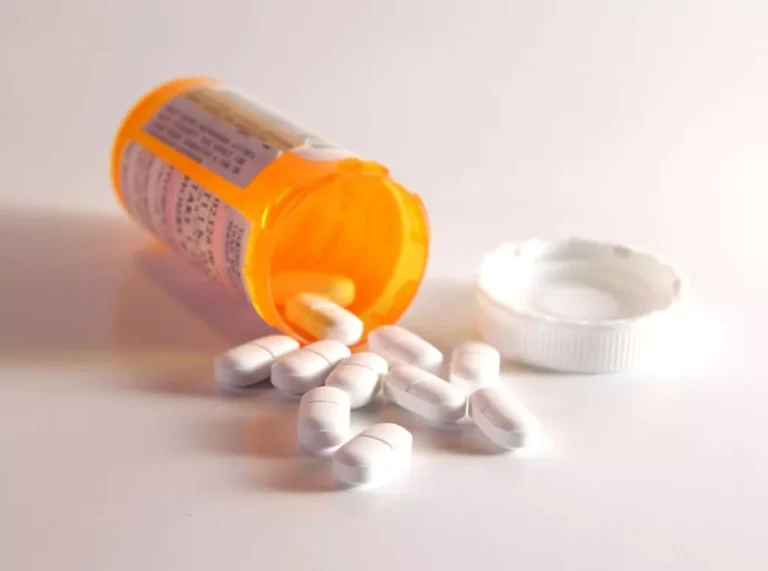
Alcohol use can factor into mental health symptoms that closely resemble those of other mental health conditions. The pancreas helps regulate how your body uses insulin and responds to glucose. If your pancreas and liver don’t function properly due to pancreatitis or liver disease, you could experience low blood sugar, or hypoglycemia. Alcohol use can begin to take a toll on anyone’s physical and mental well-being over time. These effects may be more serious and more noticeable if you drink regularly and tend to have more than 1 or 2 drinks when you do.
- For the purposes of this review, if I² was greater than 50%, it was considered to show a substantial level of heterogeneity.
- Diastolic blood pressure is the pressure in the arteries between heartbeats.
- James M Wright (JMW) formulated the idea, developed the basis of the protocol, and contributed to data analysis, interpretation of the final result, and editing of the final draft of the review.
- We wanted to quantify the effects of a single dose of alcohol on blood pressure and heart rate within 24 hours of consumption.
How we reviewed this article:
More recently, Cosmi and colleagues (2015) examined the effects of daily wine consumption in subjects enrolled in an Italian trial of heart failure patients (mean age ~67), most of whom had reduced ejection-fraction heart failure. Different levels of daily wine consumption (i.e., sometimes, 1 to 2 glasses/day, and ≥3 glasses/day) had no effect on fatal or nonfatal outcomes (e.g., hospitalization for a CV event). Subjects who drank wine more often, however, https://ecosoberhouse.com/ were less likely to have symptoms of depression and more likely to have a better perception of health status. They also had lower levels of circulating inflammatory markers, such as C-terminal proendothelin-1 and pentraxin-3 (Cosmi et al. 2015). Older studies had shown potential benefits of moderate drinking of red wine, but more recently it has been proven that no level of alcohol consumption is considered safe, or can reduce the risk of hypertension.
YftachGepner 2015 published data only
An increase in plasma renin results in increased production of angiotensin I (AI), which is converted to angiotensin II (AII) by angiotensin‐converting enzyme (ACE). The hormone AII is a potent vasoconstrictor that stimulates aldosterone and vasopressin secretion from the adrenal gland, promoting sodium and water retention (Schrier 1999). As a result, peripheral resistance and blood volume are increased, leading to elevated arterial blood. To determine short‐term dose‐related effects of alcohol versus placebo on heart rate in healthy and hypertensive adults over 18 years of age. However, experts believe these effects may result from differences between people who drink moderately and those who do not.
Conen 2008 published data only
- We followed the same formulae for combining groups if a study reported two different types of alcoholic beverages containing the same amount of alcohol.
- More RCTs are needed to study the effects of low‐dose alcohol to better delineate the dose‐response effects of alcohol on BP and heart rate.
- In this study, all test drinks were poured into paper cups to achieve blinding of participants.
- In reality, there’s no evidence that drinking beer (or your alcoholic beverages of choice) actually contributes to belly fat.
- And, in fact, the study also showed that drinking one or fewer drinks per day was related to the lowest likelihood of dying from a stroke.
- Older studies had shown potential benefits of moderate drinking of red wine, but more recently it has been proven that no level of alcohol consumption is considered safe, or can reduce the risk of hypertension.
We calculated and reported mean difference (MD), with corresponding 95% confidence interval (95% CI). We included adult (≥ 18) participants of both sexes without any restriction on their health condition. “The best ways to maintain good health and lower blood pressure is by maintaining a healthy weight, exercising regularly, and maintaining a good diet that is low in salt and predominantly made up of unprocessed foods,” Amin said. Alcohol also stimulates the release of adrenaline and puts the body in a fight-or-flight mode, leading to elevated blood pressure. Alcohol withdrawal can be difficult and, in some cases, life threatening. Depending on how often you drink and how much, you may need support from a healthcare professional if you want to stop drinking.

Excessive drinking may affect your menstrual cycle and potentially increase your risk for infertility. Over time, drinking can also damage your frontal lobe, the part of the brain responsible for executive functions, like abstract reasoning, decision making, social behavior, and performance. If your body can’t manage and balance your blood sugar levels, you may experience greater complications and side effects related to diabetes. Past guidance around alcohol use generally suggests a daily drink poses little risk of negative health effects — and might even offer a few health benefits. People over 40 years old or those with a higher risk of hypertension should have a doctor check their blood pressure at least once a year. In a study from 2021, researchers gave 500 mL of orange juice, around 2 cups, daily to people with prehypertension or stage 1 hypertension.
Beulens 2005 published data only
Exceeding this limit increases the risk of cardiovascular, hepatic, and nervous system disorders (Bellentani 1997; Fuchs 2001; Gao 2011; Lieber 1998; McCullough 2011; Nutt 1999; Welch 2011). Also, multiple studies have found associations between consumption of alcoholic beverages and specific cancers (Kushi 2012; Seitz 2007). Abuse of alcohol resulted in approximately 3 million deaths worldwide and 132.6 million disability‐adjusted life years (DALYs) in 2016 (WHO 2018). To examine the acute and chronic effects of alcohol on blood pressure (BP) and the incidence of hypertension.
- A healthcare professional can help a person find treatment and support to help them stop drinking or lower their intake.
- So, it was not appropriate to conduct a separate meta‐analysis based on that population.
- Increased autophagy as a possible mechanism underlying the adverse myocardial effects of ethanol is intriguing.
- This area of research was briefly outlined here; more comprehensive reviews on these mechanisms are available (Krenz and Korthuis 2012; Mathews et al. 2015).
- That’s because alcohol can weaken your immune system, slow healing and make your body more susceptible to infection.
Acute and Long-term Effects of Alcohol on the Myocardium
The regular consumption of over 30 g/day of alcohol increases hypertension risk in linear proportion to the dosage and may independently cause cardiac damage in hypertensive patients. The type of alcoholic beverage also determines the impact on health, with red wine being considered healthy, for instance, due to the high polyphenol content. Most importantly, masked hypertension, where patients are hypertensive at home but not in the doctor’s office, is as serious a health risk as sustained hypertension.

Other factors to keep in mind
Over two billion people drink, with the highest per capita consumption in the European Union (EU). People who drink regularly consume a mean of 33 g of anhydrous alcohol per day, with beer being the most common how does alcohol affect blood pressure alcoholic beverage. Researchers also found that people who drank heavily were 69% more likely to have stage 1 hypertension than people who do not drink and 2.4 times more likely to have stage 2 hypertension.


